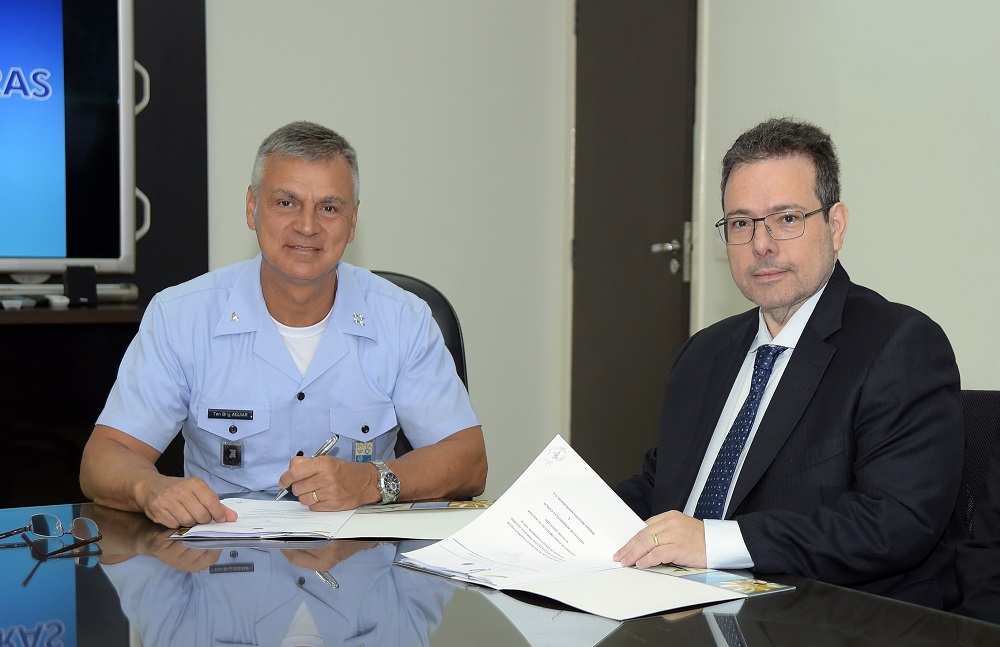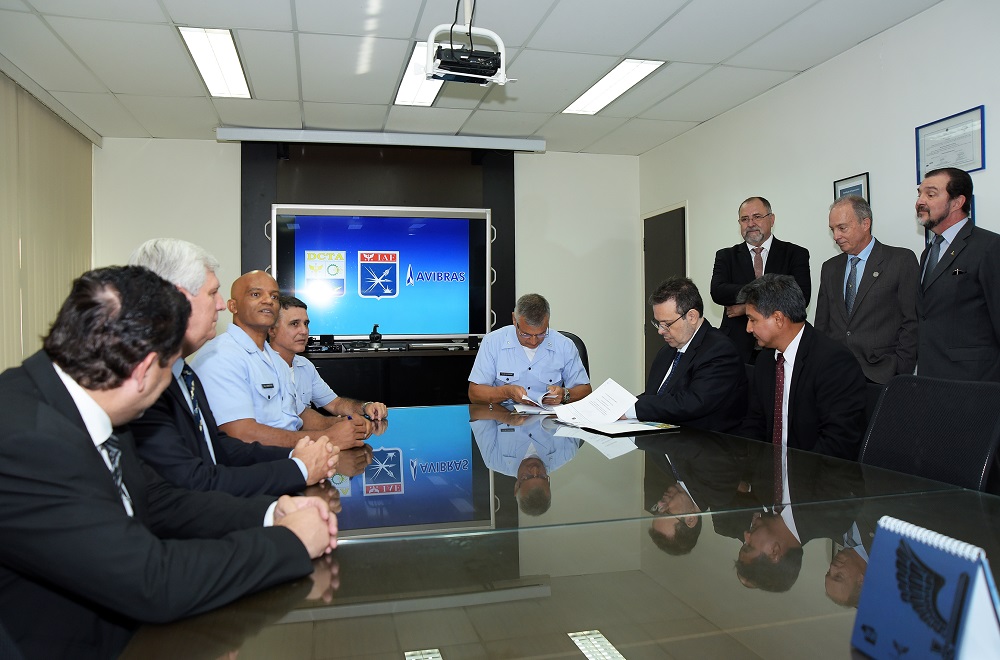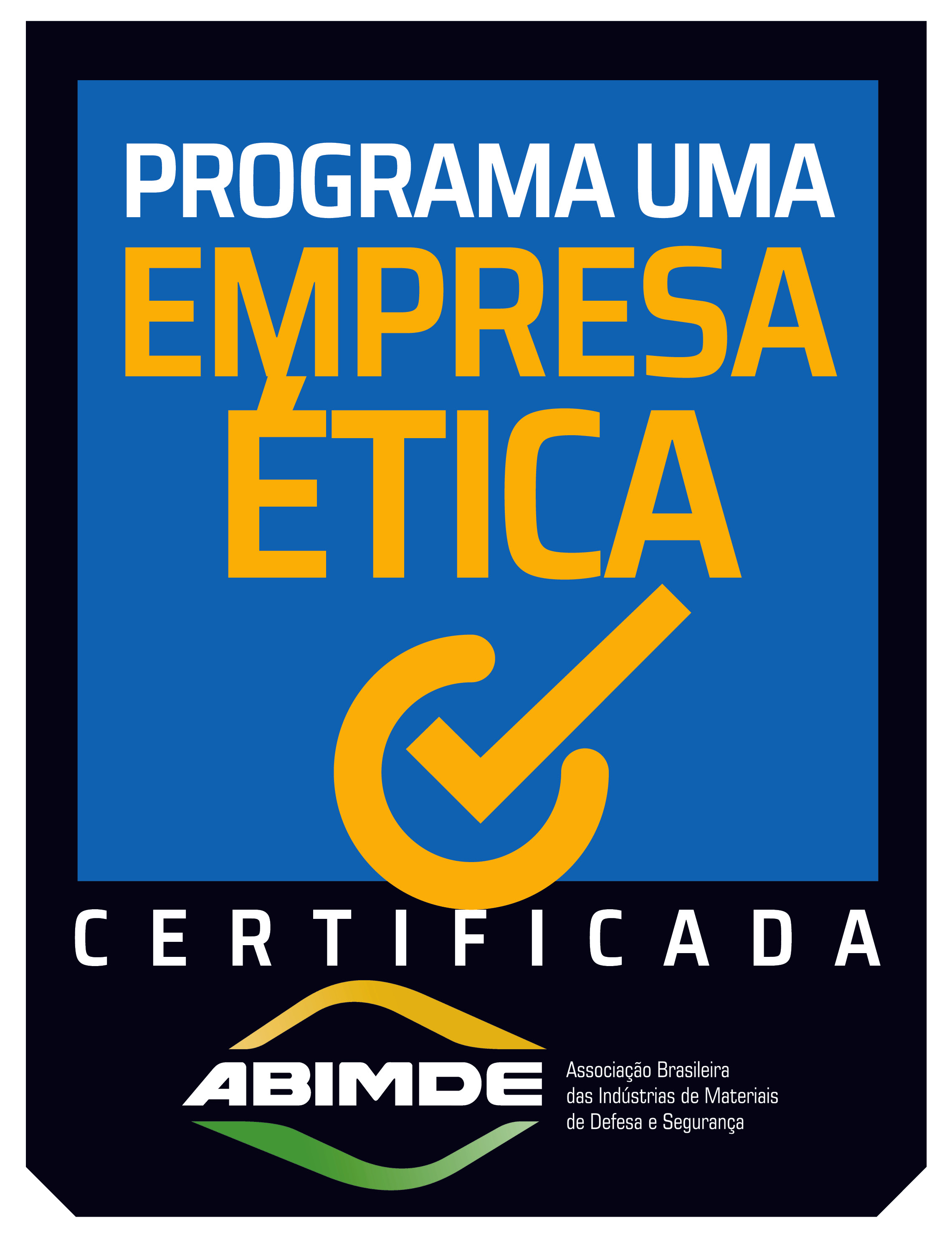- Details
- Published: 28 January 2020
Avibras Aerospace Industry and the Aeronautics and Space Institute (IAE) from the Department of Science and Aerospace Technology (DCTA) signed this Monday, January 20th, a technology transfer agreement granting production and commercialization rights over the VSB-30, the most successful suborbital vehicle of the Brazilian Space Program.
Thirty-one launches have already been made, all successfully, being four from the Alcantara Launch Center (CLA), in Maranhao, and twenty-seven from the Esrange Space Center, in Sweden. The platform is capable to perform experiments with application in satellites, space vehicles and in the pharmaceutic industry.
The technology transfer agreement will allow the continuity of the industrialization and commercialization of the VSB-30 with technological enhancements, besides boosting the development of internationally competitive national launcher vehicles for micro satellites.
Developed by IAE, result of the cooperation between Brazil and Germany, the VSB-30 is launched by a rail system, stabilized by fins and has bearing inductors that are activated when the vehicle leaves the rails. It has two stages of solid propulsion and carries scientific and technological loads up to 400 kilograms to an altitude of 270 kilometers enabling experiments in micro gravity environment for up to 6 minutes.
The VSB-30 is certified, qualified and considered safe, reliable and stable. Due to its characteristics, the VSB-30 has an excellent acceptance in the international scenario of orbital vehicles and becomes pioneer in the process of space technology transfer in Brazil.
Competences - With expertise in the development of national technological solutions in the aerospace area, being a pioneer in the Brazilian Space Program, Avibras is the only 100% Brazilian owned private Company that has enough competence to integrate launchers to the Brazilian Space Program.
Avibras Commercial Vice-President Leandro Villar, considers a privilege for the company to receive a product that is both successful and consolidated in the market. According to him, the initiative also fortifies the triple helix, a concept that points to a conjunct action between company, academia and government as the direction for technological innovation and economic development of the country. “With this program we want to amplify Brazil’s leadership in the space area, enhancing the Brazilian Space Program, and also generate employment”, highlighted Leandro.
Currently, Avibras takes part of the development and manufacturing of the S50 rockets engines of the Microsatellite Launcher Vehicle (VLM-1) in the scope of the National Program of Space Activities of the Brazilian Space Agency (AEB).
According to him, Brazil can have a relevant role in the Space Market since it has acquired several competences through research and innovation in the Space area throughout almost six decades, developed a competent industrial base, and has a Launch Base in Alcantara (CLA) with privileged geographical position, factors that are not usually combined in one single country.
The General-Director of DCTA, General Luiz Fernando de Aguiar, pointed out that this is a unique moment for Brazil. “We are transferring for the industry a product that is already tested and has Brazilian technology. We have completely fulfilled the maturity life cycle of the product”, he declared.
According to IAE Director, Major General Engineer Cesar Demetrio Santos, Avibras will conduct the project with competence. “It is the consolidation of a dream. This approximation with the industry is essential to promote the Space Program”, he stated.
Lieutenant General Hudson Costa Potiguara, who will take DCTA Office this week, affirmed that such partnerships strengthen the industry. “I see excellence in this project. Avibras is a strong industry, constant partner of DCTA, and has as one of its missions to be the fomenter of industry”.










